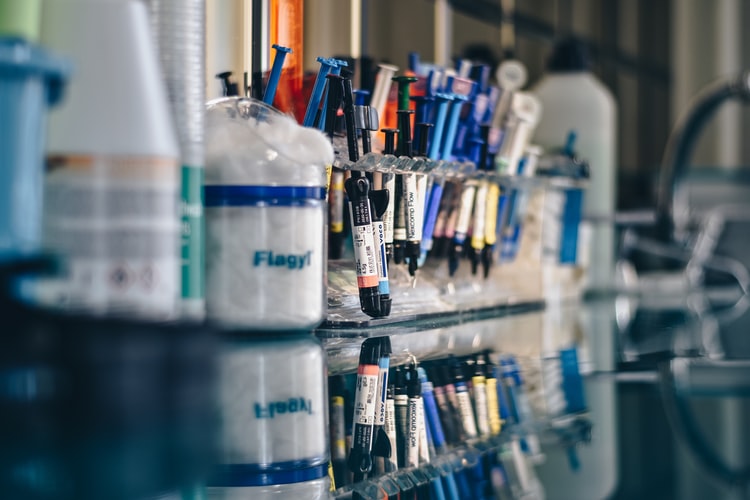Three of the focuses of my blog are Financial Literacy/Money, Business/Entrepreneurship and STEM. Medical labs are critical pieces in the healthcare industry as they help doctors understand the maladies that their patients face. Just like academic and industrial labs, it’s important to still do quality science. Doing so will assure continued business. The following contributed post is entitled, How Can You Stop Your Lab From Landing Negative Results.
* * *

Medical labs are the backbone of the healthcare industry. From the development of new medications to the diagnosis of conditions; it all starts and ends in innocuous-seeming labs just like yours. As such, most of us have come to hold entrepreneurs within this industry in high esteem. Still, assuming this positive industry reputation will save your lab would be naive. Life-saving heroics aside, medical labs are as liable as any business to stumble into difficulties and even face failure.
If your lab-provider relationships keep turning negative, then, you may soon face issues. Instead of moving forward with misplaced ideas about saving the world, you need to address why things are going wrong. We understand that this can feel like a distraction from your ‘higher purpose’, but failure to get to the bottom of this will stop you from saving lives down the line.
That’s why you need to keep reading to find out how you can turn those negative results into a positive that saves your lab’s life.
Store samples properly
Collecting samples from patients can be a time-consuming and expensive process for medical professionals. If you carelessly ruin the integrity of said samples by failing to store them properly, it’s no wonder you aren’t making any friends.

It’s incredible how easy it is to contaminate or ruin results by getting this simple point of your processes wrong. What’s more, there is no one-size-fits-all standard for how you should and shouldn’t treat each test that comes your way.
Of course, there are some basic staples, such as a lab refrigerator from Rollex Group and companies like them. You should also be sure to keep vials well-sealed, and within uncontaminated areas. For some things, though, such as specific blood tests and skin samples, even more specialist storage will be necessary.
Whatever you do, never play guessing games when it comes to this. Everytime something unknown comes into your lab, do thorough research into which storage processes you should put in place. If in doubt, it’s even worth asking the healthcare professional who’s sending it your way. Better that than risk making a mistake and having to come crawling later on. Once you have some idea, make notes. That way, you’ll always be able to implement proper storage processes for repeat samples down the line.
Implement a team who work well
There’s no getting around it; qualified lab technicians can be downright expensive to employ. The role requires intense training, after all, and the best teams are those who have a fair few years of experience working within the industry.
To save costs, though, it’s tempting to hire inexperienced staff who are fresh out of the classroom. And, guess what? This could be another fatal flaw for your lab’s success. Of course, all new graduates have to start somewhere, and taking on college-leavers could even work if you leave experienced members of your team to train them.
If your team solely consists of cheap and inexperienced team members, though, you’re fast heading for trouble. In this instance, you would be far better off hiring less staff with more experience. That way, you can balance costs and still enjoy results you can trust in.
It’s also worth noting that your team needs to have decent teamwork structures in place if your lab is to see any real success. A lab team have to collaborate on everything from test times to results across the board, after all. If your employees aren’t talking, things are never going to come together, and clients will never get the results they expect.
Make sure, then, that your team understands the importance of talking to each other about what they’re doing. You could even arrange a few group team working activities to bring the point home.
Speed up your processes
Whether your lab focuses around diagnostics or research, slow processes are never going to work in your favour. If you have a healthcare professional waiting on results, delays mean that they look bad in front of patients. You can bet that they wouldn’t hesitate about turning to a more trustworthy lab as a result. Equally, excessive delays from a research perspective could see the findings you’re working on or similar being released by another lab in the interim.
Of course, speeding things up is never worthwhile at the detriment of your work. A rushed research study is evident from a mile off and will never buy you the respect that you need. Still, it is possible to quicken your processes without compromising your work.
We’ve already mentioned the importance of teamwork. That alone can go a long way towards making sure everyone works faster with the information they need. The correct equipment, too, can speed processes no end. And, of course, a system which sends results straight to healthcare computers could lessen lost time at the end of your research. All while ensuring results land straight into the correct inboxes in no time.

Make sure your insurance is inclusive
Lastly, lacking insurance policies could become significant nails in your lab coffin if you aren’t careful. The fact is that you’re dealing with lives, not just faceless samples. Everything you do (or don’t do) can create a ripple effect. And, this is what your insurance policy needs to account for.
If a doctor ends up getting sued for a misdiagnosis off the back of your test results, for example, you need to ensure that you have the correct malpractice and liability insurance in place. Mistakes happen, and results don’t always get things right. Still, this would ruin relationships anyway if a healthcare provider had to foot the bill due to your lacking insurance policies. Make sure, then, that you implement the correct insurance at all times, and keep your plans updated.
Negative results aren’t something we embrace in any lab, especially when they’re of this kind. Make sure that you’re able to turn things around as soon as possible to bring much higher levels of success to your lab door.
